Understanding ADHD and the Rising Interest in Natural Solutions
Attention-deficit/hyperactivity disorder (ADHD) is one of the most extensively studied neurodevelopmental disorders, yet it remains a complex condition that affects millions of individuals across all stages of life. Characterized by persistent patterns of inattention, impulsivity, and hyperactivity, ADHD can significantly impact academic performance, workplace productivity, and interpersonal relationships. In recent years, there has been a notable rise in public interest surrounding natural alternatives to conventional pharmaceutical treatments. Many individuals seek holistic approaches that might complement traditional therapies, reduce potential side effects, or even serve as standalone options for mild cases. Among these alternatives, certain herbs have garnered attention for their potential to support cognitive function, emotional regulation, and overall mental clarity.
You may also like: Where to Buy Bacopa Monnieri: How to Find Quality Supplements for Cognitive and Memory Support
Herbal remedies appeal not only because of their historical usage but also due to an increasing body of scientific research exploring their cognitive benefits. Botanical treatments offer a fascinating intersection between traditional wisdom and modern neuropharmacology. At the same time, it is crucial to approach these options with the same degree of scrutiny applied to pharmaceuticals. Ensuring that any natural supplement meets standards for safety, efficacy, and evidence-based application is paramount. In this comprehensive exploration, we will delve deeply into which herbs are considered among the best for ADHD, how they may function in the brain, and how they might fit into a broader cognitive health strategy that also considers factors like nutrition, including the importance of vitamins good for dementia and memory preservation.
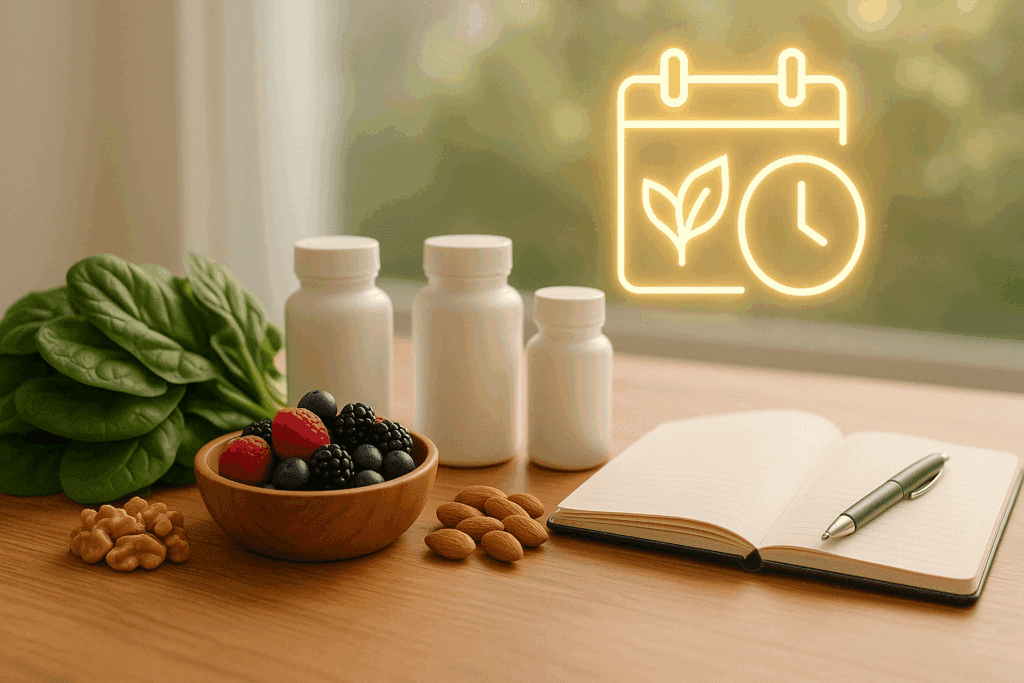
Key Criteria for Evaluating Herbs for ADHD Support
When evaluating herbs for ADHD, several critical factors must be considered. First and foremost is scientific evidence. While anecdotal reports can offer initial insights, clinical studies, preferably double-blind and placebo-controlled, provide the highest level of credibility. Next is the herb’s mechanism of action. Does it influence neurotransmitters such as dopamine, norepinephrine, or serotonin, which are intricately involved in ADHD pathophysiology? Safety is another vital criterion. Herbs must have a clear safety profile, especially when used over extended periods, and should not interact negatively with common medications.
Efficacy also depends on dosage forms and standardization. Herbs that have been rigorously processed to maintain consistent levels of active compounds provide more reliable results. Additionally, understanding individual variability is essential. What works well for one person may not yield the same results for another, underscoring the importance of personalized approaches. Integrating herbal strategies with overall brain health practices, such as incorporating vitamins and dementia prevention nutrients, can further support sustainable cognitive function.
Top Herbs That May Support ADHD Symptoms
Bacopa Monnieri: An Ancient Cognitive Enhancer
Bacopa monnieri, often referred to simply as Bacopa, is a revered herb in Ayurvedic medicine traditionally used to enhance memory and cognitive function. Modern studies have found that Bacopa may increase cerebral blood flow, enhance synaptic communication, and reduce oxidative stress within the brain. These properties are particularly relevant for individuals with ADHD, where executive function and working memory deficits are common.
Notably, Bacopa is believed to influence serotonin and dopamine levels, neurotransmitters closely linked to mood regulation and attention processes. In randomized clinical trials, participants receiving Bacopa extract demonstrated improved cognitive performance, especially in memory recall and processing speed. Given its neuroprotective qualities, Bacopa also aligns well with broader discussions about cognitive longevity, including topics such as vitamins good for dementia and maintaining brain vitality over time.
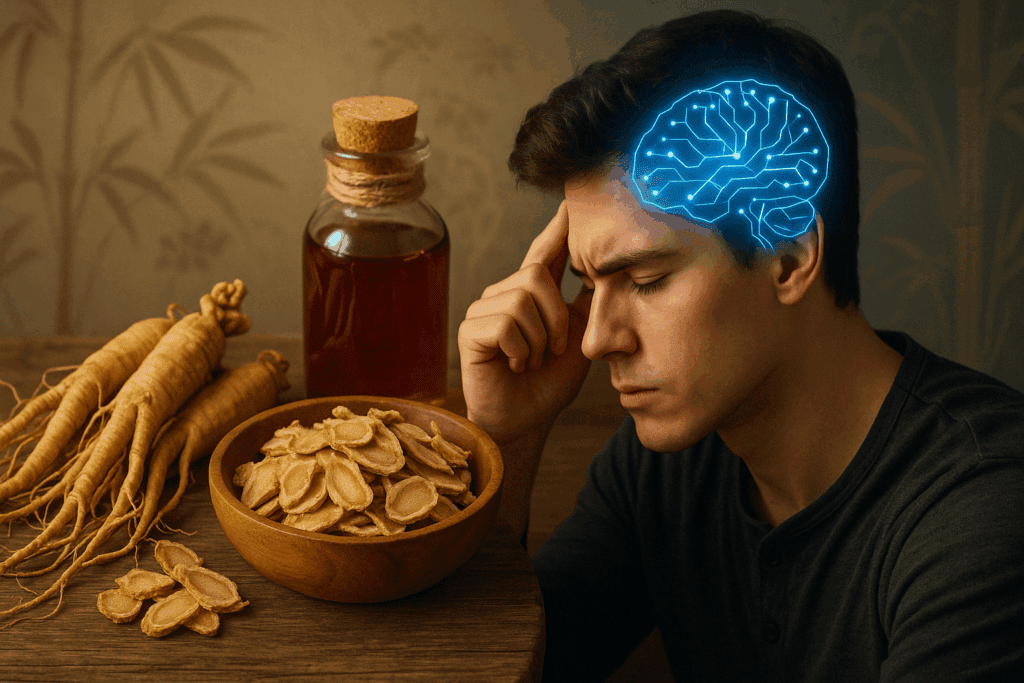
Ginkgo Biloba: Enhancing Blood Flow and Mental Clarity
Ginkgo biloba is another botanical widely studied for its cognitive benefits. By improving cerebral blood flow and offering powerful antioxidant properties, Ginkgo may support focus, memory, and overall mental alertness. These effects can be particularly beneficial for individuals with ADHD, where sustaining attention over long periods is often a major challenge.
Ginkgo’s capacity to modulate neurotransmitter systems, especially dopamine and norepinephrine, suggests a plausible mechanism for its supportive role in ADHD management. Furthermore, the connection between Ginkgo biloba and vitamins that prevent dementia highlights its broader relevance in promoting cognitive resilience across the lifespan. Regular supplementation with Ginkgo, when used appropriately and under professional guidance, may complement other strategies aimed at supporting both immediate focus and long-term brain health.
Rhodiola Rosea: Boosting Energy and Reducing Mental Fatigue
Rhodiola rosea, known as an adaptogenic herb, has been prized for its ability to enhance energy, stamina, and mental endurance. In the context of ADHD, where fatigue and burnout from sustained mental effort are frequent concerns, Rhodiola offers a natural means of revitalization. By modulating cortisol levels and enhancing mitochondrial energy production, Rhodiola can support greater resilience under cognitive stress.
Scientific research has demonstrated that Rhodiola supplementation may improve attention span, reduce feelings of mental fatigue, and promote a sense of calm focus. Such outcomes are vital for individuals juggling complex tasks and attempting to regulate distractibility. Moreover, as discussions about brain health often highlight the role of vitamin supplements for dementia prevention, adaptogens like Rhodiola further enrich the natural medicine cabinet for cognitive well-being.

Panax Ginseng: Traditional Tonic for Focus and Mental Stamina
Panax ginseng, sometimes referred to as “true ginseng,” is another traditional herb with a long-standing reputation for supporting cognitive vitality. Modern research suggests that ginsenosides, the active compounds in Panax ginseng, may enhance dopamine transmission, bolster working memory, and improve sustained attention—all functions critically relevant to ADHD.
In addition to its immediate cognitive effects, Panax ginseng supports long-term brain health by reducing oxidative stress and promoting neurogenesis. Given the interplay between cognitive performance and neurological preservation, it is worth noting how Panax ginseng fits into broader strategies that include optimal nutrition, such as ensuring adequate intake of vitamins that prevent dementia. A holistic approach that encompasses both herbal supplementation and nutrient sufficiency offers the most comprehensive pathway to enduring cognitive clarity.
The Importance of Holistic Strategies for ADHD Management
While herbs can offer powerful support, they are most effective when incorporated into a holistic strategy that addresses all facets of brain health. This includes proper nutrition, regular physical exercise, quality sleep hygiene, mindfulness practices, and professional psychological support when necessary. Nutrition, in particular, plays a pivotal role. Ensuring sufficient intake of brain-essential nutrients—particularly those known as vitamins good for dementia—provides a biochemical foundation that enhances the effectiveness of herbal interventions.
Several vitamins have been extensively studied for their impact on cognitive function and memory preservation. B vitamins, especially B6, B9 (folate), and B12, are critical for neurotransmitter synthesis and homocysteine regulation—both of which are crucial for maintaining focus and preventing cognitive decline. Omega-3 fatty acids, though technically not vitamins, are also essential for synaptic plasticity and neuroprotection. Including vitamin-rich foods or supplementation as part of an ADHD management plan ensures that the brain has all necessary resources to function optimally both now and in the future.
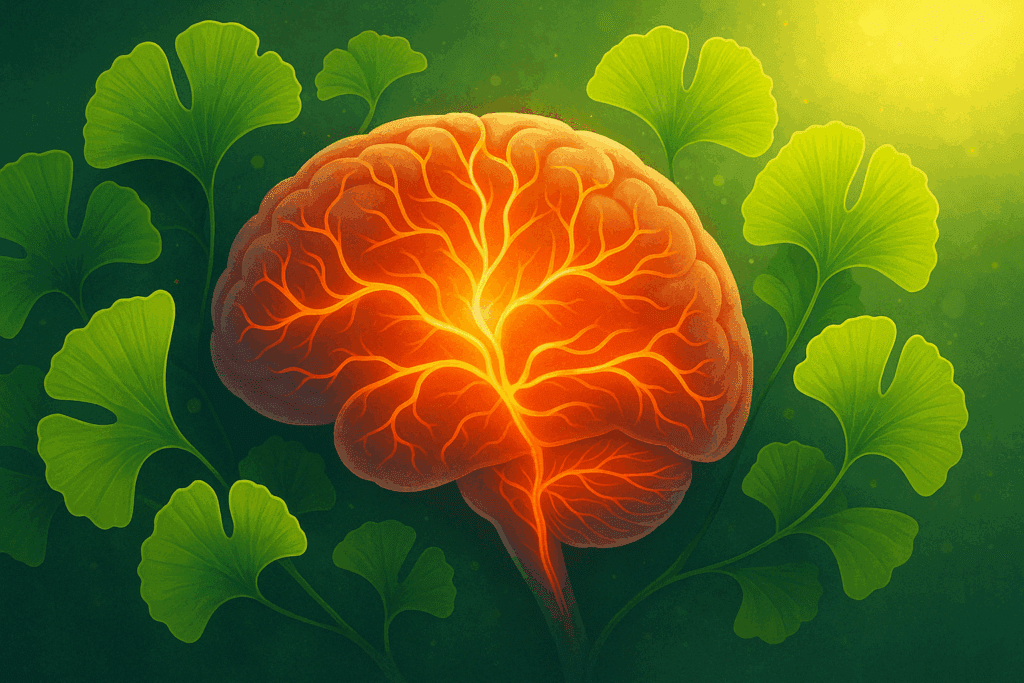
Nutrition and Cognitive Health: The Overlapping Themes
The relationship between vitamins and dementia prevention provides essential lessons for those concerned with ADHD. Nutrients that protect against age-related cognitive decline often support similar neurochemical processes that regulate attention and executive function. For instance, deficiencies in B vitamins have been linked not only to memory loss in aging populations but also to attentional deficits in younger individuals. This overlap underscores the critical importance of incorporating vitamins that prevent dementia into daily routines from an early age.
Vitamin D, often termed the “sunshine vitamin,” has been associated with mood regulation and cognitive clarity. Studies suggest that low vitamin D levels may correlate with increased ADHD symptom severity, reinforcing the need for comprehensive nutritional strategies. Likewise, vitamin C’s role as a potent antioxidant protecting against neuroinflammation further bridges the connection between immediate focus enhancement and long-term cognitive resilience.
Practical Steps for Integrating Herbs and Nutrients into a Cognitive Health Routine
For those interested in using herbal remedies to support ADHD symptoms, integration should be approached thoughtfully. Consulting with a healthcare provider, particularly one knowledgeable in integrative or functional medicine, is critical. Personalized recommendations based on individual needs, potential herb-drug interactions, and dosage guidelines ensure safety and efficacy.
When selecting herbal supplements, prioritize products that have been standardized to contain consistent levels of active compounds. Look for third-party testing certifications, which help ensure quality and purity. Combine herbal strategies with a robust nutritional foundation, incorporating foods rich in vitamins good for dementia such as leafy greens, berries, fatty fish, and nuts. In cases where dietary intake may be insufficient, targeted vitamin supplements for dementia prevention can bridge the gap and offer additional support for cognitive function.
Above all, maintaining consistency in both herbal supplementation and nutritional practices is key. Cognitive improvements often unfold gradually over weeks or months, requiring patience and regular evaluation. Tracking changes in attention span, impulsivity control, and overall mood can help assess effectiveness and guide necessary adjustments.
Emerging Research and Future Directions in Natural Cognitive Support
As interest in natural approaches to cognitive health continues to grow, research efforts have expanded accordingly. New studies exploring the synergistic effects of combining herbs and vitamin supplements for dementia prevention offer promising avenues for more robust interventions. For example, combinations of Bacopa monnieri and B vitamins have shown additive effects in enhancing memory and reducing oxidative stress, suggesting that targeted stacking approaches may optimize results.
Advances in nutrigenomics, the study of how genes interact with nutrients, may soon allow for even more personalized recommendations. Understanding individual genetic predispositions related to neurotransmitter metabolism, antioxidant needs, or nutrient absorption efficiencies could revolutionize how we approach ADHD management with natural tools.
At the same time, it remains crucial to ensure that enthusiasm does not outpace evidence. Rigorously designed, large-scale clinical trials are still needed to validate the preliminary findings and solidify herbal therapies’ roles within standard ADHD treatment paradigms. Nevertheless, the convergence of ancient botanical wisdom with cutting-edge neuroscience continues to open exciting possibilities for safer, more holistic cognitive support strategies.
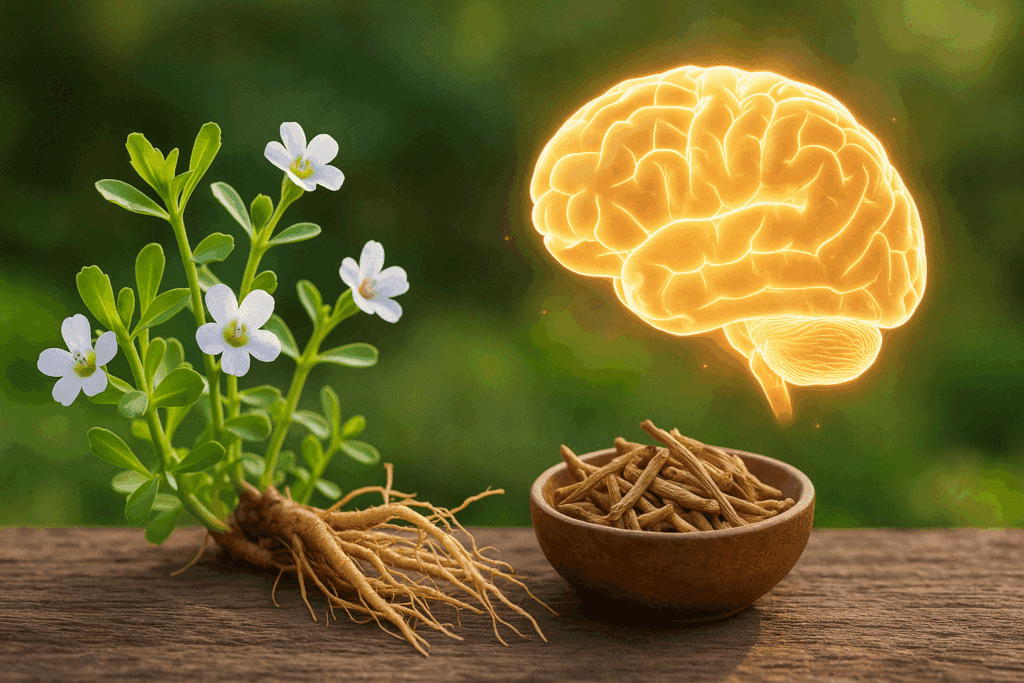
Frequently Asked Questions (FAQ): Vitamins and Dementia Support
Q1. How do personalized vitamin plans improve outcomes for individuals concerned about dementia?
Personalized vitamin plans offer a more targeted approach compared to general supplementation, especially when it comes to vitamins good for dementia. A growing body of research suggests that genetic factors influence how individuals metabolize certain nutrients critical for brain health. Tailoring vitamin supplements for dementia risk may optimize levels of B vitamins, vitamin D, and omega-3s more precisely. Personalized plans also often monitor inflammatory markers and cognitive function over time, allowing for fine-tuning. When asking what vitamins help with memory and dementia, considering personal biochemistry could be the future of effective prevention strategies.
Q2. Can taking vitamins alongside cognitive training exercises enhance their effectiveness for dementia prevention?
Emerging studies suggest that pairing vitamins and dementia prevention strategies with cognitive training yields synergistic benefits. Vitamins that prevent dementia often work by improving brain plasticity and reducing inflammation, while cognitive exercises stimulate neural networks directly. For example, taking omega-3 fatty acids or B-complex vitamins while engaging in memory tasks appears to enhance new synapse formation. This combination may lead to stronger resilience against cognitive decline. Exploring both supplementation and mental fitness together could redefine what vitamins help with memory and dementia really mean in a practical setting.
Q3. How do lifestyle factors modify the effects of vitamins on dementia risk?
Lifestyle factors such as exercise, sleep quality, and diet significantly amplify or diminish the effects of vitamins good for dementia. Someone who maintains a nutrient-dense, Mediterranean-style diet tends to experience better results from vitamin supplements for dementia than someone with chronic inflammation or poor lifestyle habits. Even the best vitamins for dementia cannot override the damaging effects of sedentary behavior or poor sleep patterns. Studies have shown that antioxidants, for instance, work more efficiently when oxidative stress levels are already managed through healthy living. Therefore, understanding vitamins and dementia prevention must include a broader view of lifestyle optimization.
Q4. Are there any vitamins that help support emotional well-being alongside memory in dementia patients?
Yes, certain vitamins that prevent dementia also play important roles in emotional regulation. For instance, vitamin D not only supports brain health but also helps stabilize mood and reduce depression, a common issue in early dementia. B vitamins, especially B6 and B12, are linked to neurotransmitter synthesis, influencing serotonin and dopamine levels. When asking what vitamins help with memory and dementia, it’s crucial to recognize that emotional well-being is deeply interconnected with cognitive health. Comprehensive vitamin supplementation strategies may provide a double benefit—enhancing both memory and emotional resilience.
Q5. What emerging technologies are helping to identify the best vitamins for dementia prevention?
New diagnostic tools like metabolomics and AI-driven nutrient analysis are revolutionizing how we identify the best vitamins for dementia. These technologies can predict nutrient deficiencies long before symptoms arise, suggesting interventions tailored to specific cognitive risks. Blood biomarker mapping, for example, may reveal early signs of oxidative stress or inflammation that targeted vitamins could counteract. Future iterations of “smart supplements” could adapt dosages in real-time based on biofeedback, elevating how we view vitamin supplements dementia strategies. The integration of tech with nutrition could radically shift preventative brain care in the next decade.
Q6. How do social and community factors influence the success of vitamins in dementia management?
Social support networks greatly enhance the benefits of vitamins and dementia prevention programs. Engaging with a community not only improves adherence to taking vitamin supplements for dementia but also provides emotional enrichment, which protects against cognitive decline. In fact, social interaction itself has been shown to lower dementia risk, suggesting a compounding effect when combined with vitamins that prevent dementia. Family education about supplementation and group-based health initiatives amplify outcomes even further. Therefore, when evaluating what vitamins help with memory and dementia, the context of a vibrant, socially connected life cannot be underestimated.
Q7. Are there misconceptions about using vitamins for dementia that people should be aware of?
A major misconception is that all vitamins good for dementia are equally effective for everyone, which is not true. The absorption and utilization of vitamins vary dramatically based on age, gut health, genetics, and even medications. Another myth is that high doses guarantee better results—whereas, in reality, mega-dosing some vitamins can be harmful. The best vitamins for dementia work best when tailored to an individual’s unique needs, and in proper balance with other lifestyle interventions. Critical thinking is essential when navigating the complex landscape of vitamins and dementia.
Q8. What role do combination formulas play compared to single-ingredient supplements in dementia prevention?
Combination formulas specifically designed for brain health often outperform single-ingredient supplements when addressing vitamins and dementia concerns. Synergistic blends that include antioxidants, B vitamins, vitamin D, and omega-3s work through multiple pathways—supporting neuroprotection, improving blood flow, and reducing inflammation. Products marketed as vitamins good for dementia often capitalize on these synergies to deliver broader protection. However, not all formulas are created equal; checking for bioavailability, clinical testing, and transparent sourcing is vital. Wise selection could redefine how effective vitamin supplements dementia regimens are over the long term.
Q9. Could certain vitamins offer neuroprotection even before cognitive symptoms appear?
Yes, preventive strategies using vitamins that prevent dementia may offer neuroprotection decades before symptoms surface. Research suggests that maintaining optimal levels of B vitamins and antioxidants during midlife could delay or even prevent structural brain changes associated with dementia. This preemptive approach shifts the narrative from treatment to true prevention, especially in at-risk individuals with family history. When pondering what vitamins help with memory and dementia, the idea of “starting early” rather than reacting late becomes critically important. Consistent nutrient intake across the lifespan may offer the greatest long-term protection.
Q10. What future trends are emerging in the field of vitamins and dementia research?
Future trends focus heavily on precision nutrition, gene-nutrient interactions, and the development of personalized multinutrient therapies. Researchers are now studying how variations in genes like APOE4 influence the body’s response to vitamins good for dementia. Additionally, the use of nanotechnology to enhance vitamin bioavailability is gaining interest, potentially creating ultra-effective vitamin supplements dementia products. Another frontier is the combination of nutritional interventions with brain-stimulation therapies for synergistic effects. Understanding these cutting-edge developments can significantly expand our current view of what vitamins help with memory and dementia into a more dynamic, preventive model for cognitive health.
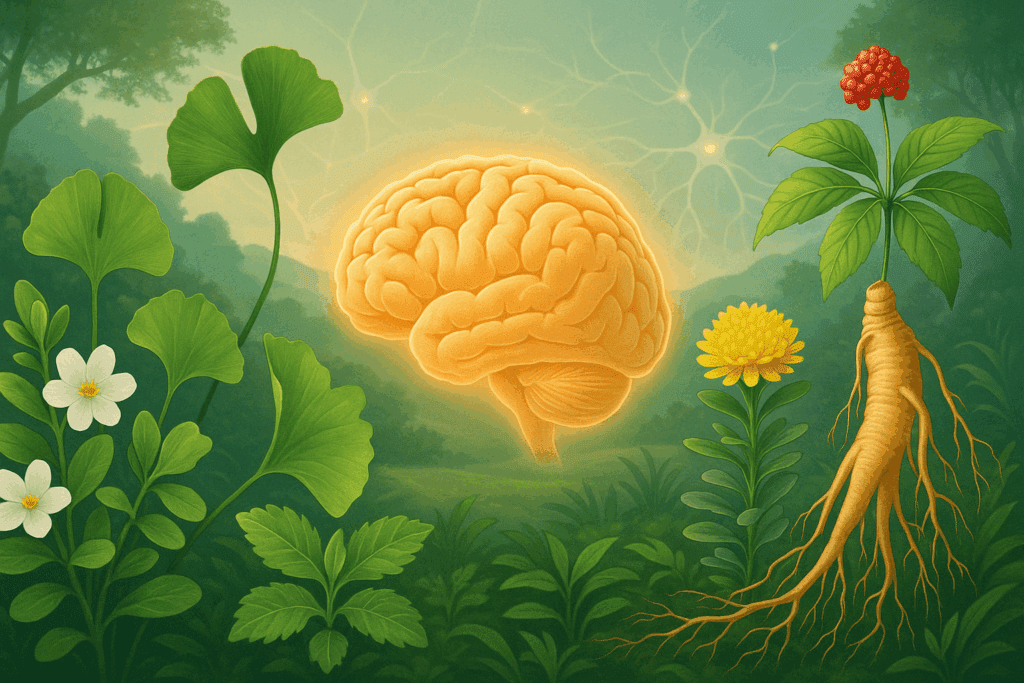
Conclusion: Embracing a Holistic Approach to ADHD Management and Cognitive Vitality
Choosing the best herb for ADHD involves more than simply selecting a single remedy; it requires a comprehensive understanding of individual needs, evidence-based practices, and a commitment to overall cognitive wellness. Herbs like Bacopa monnieri, Ginkgo biloba, Rhodiola rosea, and Panax ginseng offer compelling benefits for focus, memory, and mental endurance. However, their effectiveness is greatly enhanced when integrated into a broader strategy that prioritizes nutrition, sleep, stress management, and emotional resilience.
Incorporating vitamins good for dementia into daily routines serves not only to protect against age-related cognitive decline but also to build a strong foundation for current mental performance. The parallels between vitamins and dementia prevention strategies and those supporting ADHD management highlight the interconnectedness of all facets of brain health. By thoughtfully combining herbal remedies, nutrient optimization, and lifestyle interventions, individuals can cultivate sharper focus, improved emotional regulation, and greater cognitive vitality over the lifespan.
As science continues to unveil the intricate relationships between botanicals, vitamins that prevent dementia, and brain function, those seeking natural support for ADHD have an expanding toolkit available. By embracing evidence-based practices and maintaining a holistic, personalized approach, it is possible to navigate the challenges of ADHD while fostering lifelong cognitive resilience and clarity.
Was this article helpful? Don’t let it stop with you. Share it right now with someone who needs to see it—whether it’s a friend, a colleague, or your whole network. And if staying ahead on this topic matters to you, subscribe to this publication for the most up-to-date information. You’ll get the latest insights delivered straight to you—no searching, no missing out.
Further Reading:
9 Natural Remedies to Support ADHD Treatment
Natural Relief for Symptoms: Top Herbs for ADHD Treatment and Management
Important Note: The information contained in this article is for general informational purposes only, and should not be construed as health or medical advice, nor is it intended to diagnose, prevent, treat, or cure any disease or health condition. Before embarking on any diet, fitness regimen, or program of nutritional supplementation, it is advisable to consult your healthcare professional in order to determine its safety and probable efficacy in terms of your individual state of health.
Regarding Nutritional Supplements Or Other Non-Prescription Health Products: If any nutritional supplements or other non-prescription health products are mentioned in the foregoing article, any claims or statements made about them have not been evaluated by the U.S. Food and Drug Administration, and such nutritional supplements or other health products are not intended to diagnose, treat, cure, or prevent any disease.


